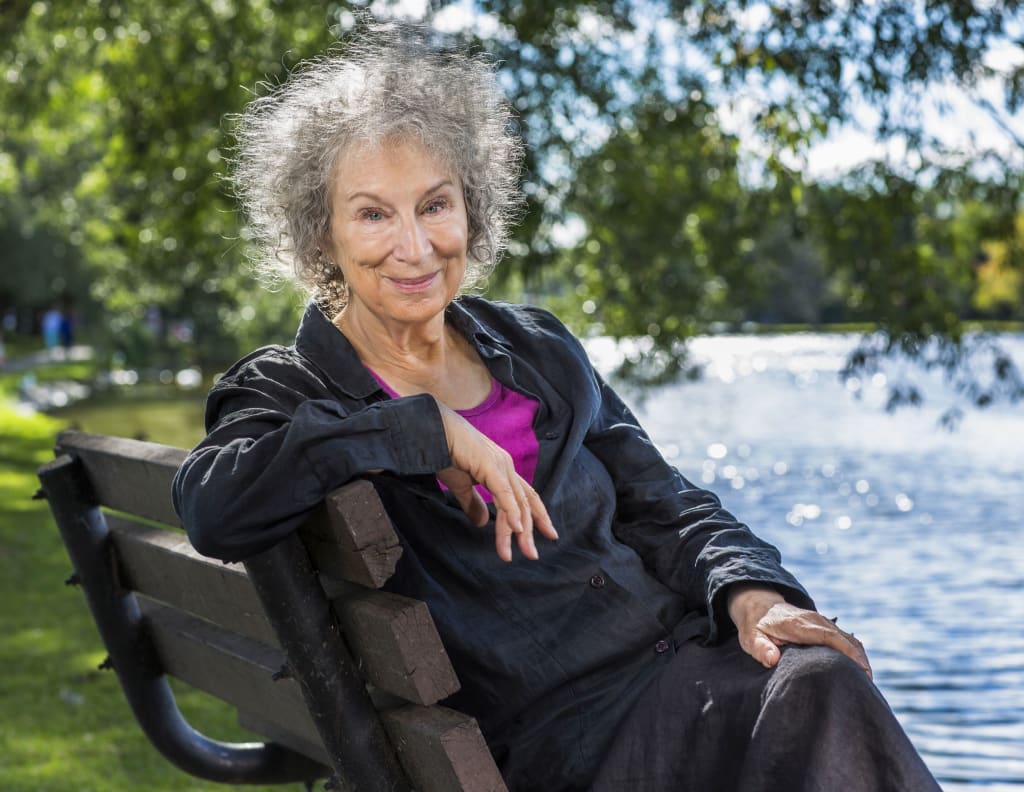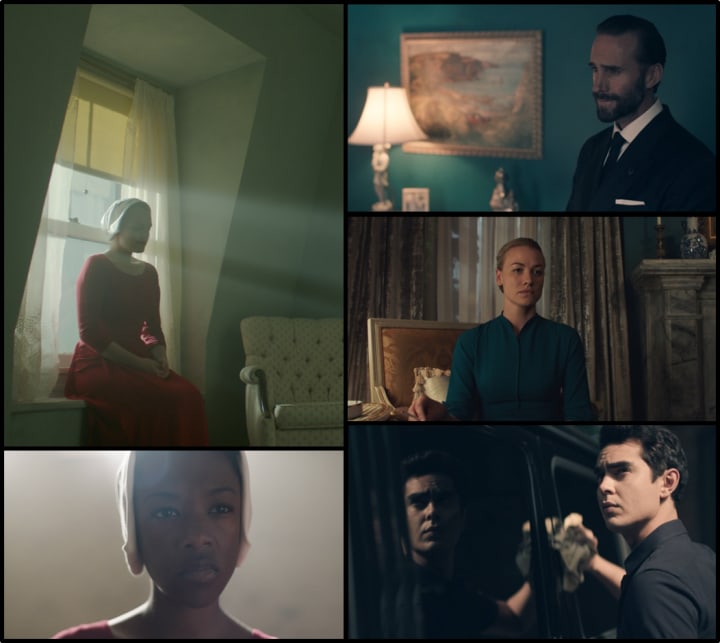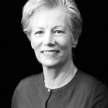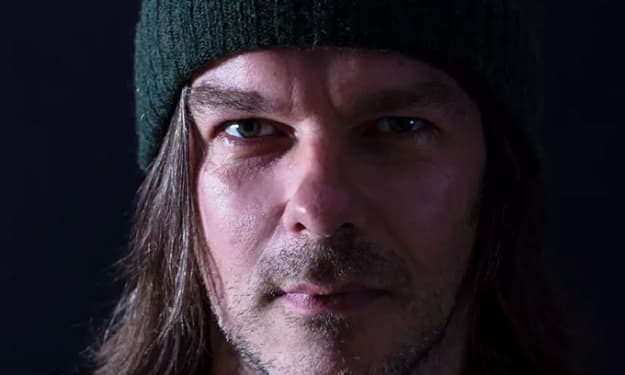In the Author’s Universe: Interview with Author Margaret Atwood
Margaret Atwood illuminates the darkness with her poetic prose.

Margaret Atwood is a poet, a novelist, and an inventor. She was born in Ottawa, Canada in 1939 to Margaret (maiden name Killam), a nutritionist and to Carl Atwood, an entomologist. With her father’s research in entomology, her early childhood was spent deep in the forests of Canada. Always a voracious reader, she knew by the age of sixteen that writing would be her vocation. Atwood graduated in 1961 with a Bachelor’s degree in English from Victoria College in the University of Toronto, and in 1962, received a Master’s Degree from Radcliffe College, Cambridge, MA.
In 1961, she won the E.J. Pratt Medal for her book of poems, Double Persephone. Atwood has also been a writer of feminist works such as The Edible Woman, published in 1969.
In Atwood’s speculative fiction (literary science fiction) novel, The Handmaid’s Tale, published in 1985, she skillfully delivers a terrifying tale of a female protagonist caught in a wretched social and political nightmare within an authoritarian theocracy set in a future New England. In 1987, she won the first Arthur C. Clarke Award for this stunningly written novel.
Atwood’s latest novel, MADDADDAM, was published in 2013, completing the trilogy started by Oryx and Crake, in 2003, and followed by The Year of the Flood in 2009.
Premiere of Hulu's The Handmaid's Tale on April 26th, 2017

Photo credit: Hulu
On April 26th, Hulu is premiering a new series, adapted from Atwood’s classic dystopian novel, The Handmaid’s Tale. Set in the near future, the totalitarian society of Gilead has come to power in the northeastern United States. Facing environmental disasters and a plunging birthrate, Gilead is ruled by a twisted fundamentalism in its militarized “return to traditional values.” As one of the few remaining fertile women, Offred (Elisabeth Moss) is a Handmaid in the Commander’s household, one of the caste of women forced into sexual servitude as a last desperate attempt to repopulate the world. In this terrifying society, Offred must navigate between Commanders, their cruel Wives, domestic Marthas, and her fellow Handmaids – where anyone could be a spy for Gilead – all with one goal: to survive and find the daughter that was taken from her.
On par with Aldous Huxley’s Brave New World, and George Orwell’s 1984, Atwood's poetic prose is timeless, dissecting the accepted norms of society, politics, and the human condition. In a quote from The Handmaid’s Tale, Atwood’s protagonist Offred says, “We have learned to see the world in gasps,” a stark warning to never become complacent in our freedoms.
Margaret Atwood is an extraordinary person—a thinker and a story teller, using her literary talents to challenge our beliefs, carrying us on an allegorical ride through dystopian worlds facing environmental disasters and societal extremes—revealing the fragile nature of our humanity.
Interview with Margaret Atwood, by Author K.E. Lanning
K.E. Lanning: It's really an honor to speak with you—I appreciate your time.
Margaret Atwood: Thank you.
I'd like to start at the beginning. In reading your bio, your father was an entomologist, so you spent a lot of your early years with your family in the forests of Canada. Why don't you tell us a little bit about your childhood and any significant events that shaped you as an author.
Well you never know these things. It was a reading family, because there was no electricity and we were not getting any TV. In fact, nobody in the late forties was getting TV much at all yet. Radio; we could get Russia on short wave, for what that was worth. Basically, it was reading, drawing, and writing.
I was an early reader, and there was never a book around that I was told I couldn't read. That would include everything from detective thrillers to biology textbooks, to sci-fi, because my dad, as a scientist, got a kick out of sci-fi. He had early classics around, such as Karel Čapek, Brave New World, and HG Wells.
I myself continued on in the fifties with Ray Bradbury as he published, and John Windham also as he published.
Recently, I did a list of dystopias for Omnivoracious, on Amazon and Goodreads.
As kids we were into rocket ships and other planets, and all of those things that I suppose really started with Flash Gordon and A Princess of Mars, War of the Worlds, those kinds of books in the early part of the century. That turned into Weird Tales and other magazines of the thirties.
We had the funny papers. On the weekend, there would be a supplement and a lot of well-loved comics. It was also the age of comic books in the late forties—the golden age of superheroes. Not just Batman, Superman, Wonder Woman, and Captain Marvel, but a whole bunch of other ones.
It was such a great golden age of [comics].
That's what people think now, but at the time they just thought it was bad for you, and that children shouldn't read them. That's when the comic’s code came in, but unfortunately for them, it only applied to colored comics, and you could still get the crime and horror in black and white.
They felt it wasn't as bad in black and white?
I don't know what they thought. It was actually worse. It didn't look as fake.
I was also reading that by the age of 16, you had already decided that writing would be your profession.
Vocation. There wasn't any chance of it being a profession, a profession for which you got paid. This was Canada in the fifties, you have to understand. You didn't expect to actually make any money out of it, so I had a brief flirtation with something called Writer's Magazine in which they listed in the back all of the places where you could sell things to magazines. The thing that paid the most was true romance, so I thought maybe I would write true romance in the day, and then in the evenings I would write my literary masterpieces, but that did not go very far because I wasn't actually up to the task. I could not do the vocabulary, which included at that time a lot of asterisks, and sentences like, "and then they were one....." That I could not do. Things happened on sofas in those magazines.
These would be the stories in which there would be two male suitors, one would work at a shoe store and the other would have a motorcycle, and you just know what happens then. Wuthering Heights, only in modern setting.
You've gone over some of the writers that you enjoyed as a kid, but I was wondering, are there any other authors that you consider primary influences to your writing?
Apart from the fact that I read all of Edgar Allen Poe at too early an age—it was in the children's library section because it didn't have any sex in it. Who made that decision? I understand now, because I just did an introduction to a book of his. Ray Bradbury did the same thing—Poe was an early influence. I don't know whether you've read all of Poe, but some of it is terminally gruesome.
I know that in some of your discussions you've talked about having elements of environmentalism and humanism in your work. I was just curious [on your thoughts].
I would say environmentalism I grew up with—it's just part of biology. I'm not sure what humanism mean? I've never quite known.
The definition of humanism changes through history. In some definitions it's sort of an acceptance of you as a human and accepting everything about being a human, and not necessarily being obsessed with religion to the point of conflict with our humanness.
I'm a strict agnostic, by which I mean there's a difference between what you can know, which has to do with the physical word, and what you can't know. What you can't know remains an open question. Those things are a matter of faith, and there's just a difference between faith and knowledge.
Yes. I think that when you have religion that carries a club to beat the human out of you, then there's something wrong with it.
But that's just one use of religion. It's a narrative subset, by which I mean you can tell by looking at what kids do under the age of three or four what's in the human package. We know that language acquisition, and music and rhythm, and storytelling, and visual imagery—kids will do that very readily. They just pick it up.
A narrative, something that only human beings do, started pretty early to tell stories about where did we come from and what happens to us in the future, and Rover the dog will never do that. Rover the dog will never say, as far as we know, what was the origin of dogs, where did dogs come from, and will never say what will happen to me personally, Rover, when I die. But human beings do that all the time.
There are all of these different narratives, and there have been very many of them, and because there have been very many of them, it's no good saying to people you shouldn't do that, because it seems to be something that people do. If there shall be religion, which it appears that there shall be, let's hope that it is a good one, and not used as a hammer.
You probably say, well, they [ideologies] are a form of religion, or you could say that religions are a form of ideology, whichever you prefer, but when there is a belief system that gives you the permission to kill other people who don't share it, that's the negative aspect. But let us not be blind to the fact that there are positive aspects.
It's one of the things that sci-fi does all the time, makes up other religions.
Speaking of science fiction, I was interested in a discussion that I read that you were talking about the term science fiction as a genre, and the difficulty with that, and you feel like that what your work is speculative fiction.
Or we could just call it [sci-fi and speculative fiction] two different things. We can call it apples and oranges. Apples take place on other planets and have spaceships in them, and oranges take place on planet earth and have to do with what we're doing here now and only the technologies that we already have got our hands on. There's a difference in kind between those two things. I know that when I go to the sci-fi shelf, I expect there to be other planets. To avoid disappointment, because when I buy a package of bran flakes, I want there to actually be bran flakes in the box, to avoid disappointment, I feel they should be called something else.
I agree. I've had definitely difficulty with that myself. I think it's really more, from what I've been able to tell, agents and publishers that are more interested in keeping it within a genre to a certain extent.
As booksellers, they want to know what shelf to put it on. Which is annoying—Ursula Le Guin has quite a lot to say on the subject and I would agree with her that there are not bad genres, there are only bad books.
Margaret, one of the things I was really interested in is the fact that you're both a poet and a novelist. Really, your poetic prose is just stunning. I was wondering if you could just discuss a little bit your journey as a writer.
I don't know whether I have one. I'm so old that there were no creative writing schools.
I think Iowa had started, and in the early sixties one at the University of British Columbia had started, but that was it. We were not encouraged to think in terms of my journey as a writer. We were not at all encouraged in that direction. We were encouraged, if anything, if you were in academia, encouraged not to let on.
People a generation before mine had done things like gone to Paris. In the thirties people would go to Paris. People of my generation were pretty much led to understand, and this is Canada in the late fifties, that if you wanted to be an artist you needed to go to New York or London. If you were from Quebec, you needed to go to Paris.
Being perverse, I thought maybe I would go to Paris and live in a garret, drink absinthe, smoke, and get TB, and write masterpieces and work as a waitress, but that didn't happen. Although I did later work as a waitress.
It was not about my journey as a writer. It was about how do I support myself if I want to do this? That was what it was about. Then do you get a job that has something to do with writing, in which case you might use up all your writing energy doing that job, or do you get some other job that is not related? People have done both, like working in a bank and being a real estate agent or something.
In my generation, in the sixties in Canada, there weren't very many women writers, and writers were told things by other writers such as, in order to really understand the world, you have to be a truck driver. Except for me. As far as I know, they're not hiring girls yet. Anyway, I can't drive, so it was like that.
I think my journey as a writer consisted of not doing what other people told me I should do.
You really craft your characters very well, and I don't know if you could comment a little bit on how you're approaching your character development.
I think that people in sci-fi are people. Maybe you should try to make them as much like people as possible, unless they're of course an altered life form, in which case you make them like that. I don't think there's any big mystery to it. There was an age of sci-fi, I guess hard rocket ship sci-fi, that I wasn't terribly interested in. I was always more interested in people-centered stories, some of which were just pretty much fantasy under another name. They could all be classed as wonder tales, things that are not going to happen in real life. Under that huge umbrella you could put vampire stories, and werewolf stories, and Frankenstein, though we're getting a bit closer to that, Frankenstein and R.U.R (Rossum's Universal Robots) and all of them, you can call them wonder tales, but they do deal with age old motifs. I think that a lot of sci-fi got its main stories from mythology.
That's a good observation.
I'm not alone in thinking that. It's not an original thing with me.
One of your extraordinary books is The Handmaid's Tale, which was made into a film in 1990, and now Hulu has developed a series based on that novel, releasing on April 26th. I'm just curious how you feel about your work being adapted to the screen and how involved you've been in the process.
I worked in film and television in the seventies quite a bit, so I know the pitfalls and challenges, and in what ways a novel is not the same as a film or television. Right now we're in an age in which the well-produced series has really carved out a chunk, and it allows you to explore a longer work in depth, and follow characters in ways that you would not be able to do in a 90 minute film.
Whenever a new platform comes along, there's a huge burst of creativity as people explore it and build it out, and that is certainly happening right now.
I saw the trailer, and it looks really interesting.
Yes. I think in my opinion, it's pretty strong. If we're letting me be less Canadian about it, it's very strong.
I had an American writer friend who came up here and he said, they don't like my book. I said, they loved your book. He said, how can you tell? I said, the thing is that ‘not bad at all’ in Canadian is the equivalent of American, ‘best thing since sliced bread’, ‘stupendous’, ‘magnificent’, ‘never been equaled’. It means the same.
You have to have the Canadian to American translator?
Yeah. I think some of the poor Americans need it, whereas the Canadians, of course if they go down there, they think they've been elevated to the status of a god.
Speaking of that, you are a real icon of the literary world, and I was just curious, what do you feel is your legacy?
Are we talking about me being dead now? Is that the subject?
We're trying to get the words down before then.
You never actually know until you are dead, and you probably aren't going to know that either, but other people will know.
Legacies come and go, because everybody is always in the present moment, so it's a bit presumptuous to say that you will have a legacy that will be the same forever and ever, because it won't be. Typically what happens when somebody fairly well known dies is there is a bust of interest in their work, and then it either sinks into oblivion, never to be seen again, or it sinks into oblivion and then makes a comeback a little bit later.
Is there any message that you have tried to put forth [in your writing]?
How we were taught poetry in high school, we were taught what is the poet trying to say, which meant that we thought, why do they have to spend all those words if what the poet was trying to say was war is hell? Why couldn't they just blurt it out instead of putting us through a sonnet?
I don't go in for telling the reader what the message is, because everybody reads in an individual way, and takes away something that has something to do with what they brought to it, or let us say that the reader is the violinist of the book. Every reader is reading the same book, but each interpretation of that book is going to be different, so I strenuously avoid telling the reader what I prescribe the message to be, since my job as a writer is making a world that is as complete as I could make it.
I did write a book called originally Negotiating with the Dead, but the publishers were put off by the dead word and changed the title to A Writer on Writing. Squeamish, aren't they? In the beginning, in the introduction I said, first of all, I tried to figure out what all of these writer's motives were, dead writers and living ones, and it was everything from to justify the ways of God to man, or to get back at the people who were mean to me in high school, or it could be both. I think my favorite was a Czech writer who said, “I want to make a boudoir so that the reader can go into it and have fun.” I thought, that's no good.
There's a big leap between a boudoir for fun and to justify the ways of God to man. Instead I asked myself, and dead and living writers, what's it like to go into a book? I was looking at the beginnings of things, and everything from, I was wandering in a dark wood to Virginia Woolf saying writing a novel is like going into a dark room and holding up a lantern which illuminates things that were already there. All of the answers had something to do with going into the dark and illuminating something.
That's what writers do, in my opinion. You go into the dark, you go into an unknown, which is the thing you're trying to write, and then you attempt to illuminate it and bring something back into the light.
That's wonderful. I love the way you say that.
I believe I heard that you're writing a new novel. Is that correct? Is that what's next on the horizon for you?
I'm very cagey about saying what I'm doing. Once upon a time I did say what I was doing, and then, of course, I didn't do it, and I got an endless number of questions. But you said you were going to do that, why didn't you do it? There's no point saying what you're going to do until you've actually done it. For the same reason, I never actually tell my publishers what's going to be in my next book, because they would probably make horrified sounds. They usually want you to write the book you just wrote.
Margaret, I really appreciate you taking the time to speak with me, and best of luck!
This interview was edited and condensed for clarity.
My sincere thanks to Margaret Atwood for graciously agreeing to my interview, and to Lucia Cino, Melinda Casey, Lauren Thorpe, and Phoebe Larmore for all of your help.
In the Author’s Universe: Sci-Fi Authors from a Writer’s Point of View is a series by author K.E Lanning. Read more about her here.
About the Creator
K.E. Lanning
Author of commercial literary and speculative fiction. www.kelanning.com, @kelanningauthor, https://www.facebook.com/KELanning1/ https://www.instagram.com/kelanningauthor/






Comments
There are no comments for this story
Be the first to respond and start the conversation.